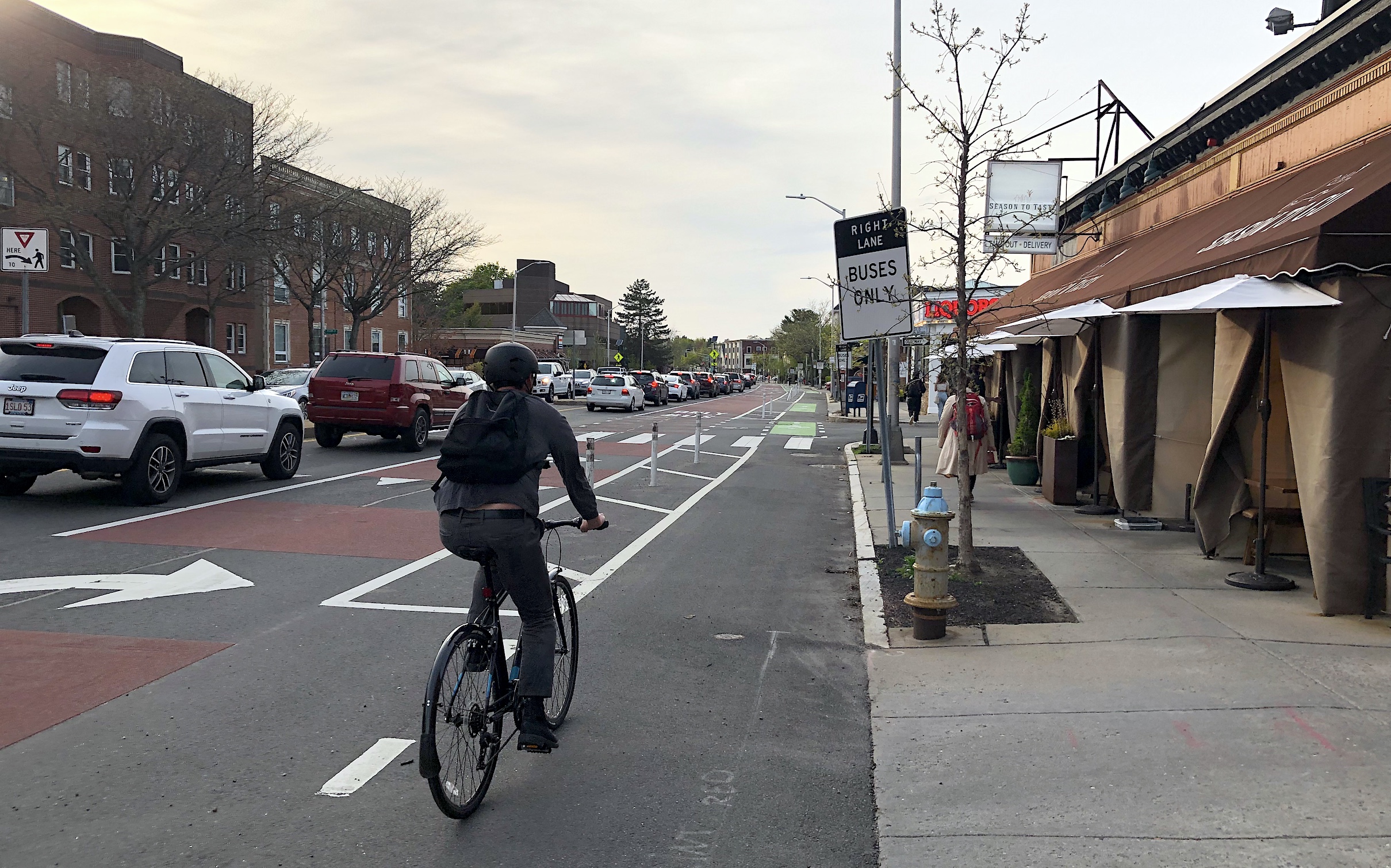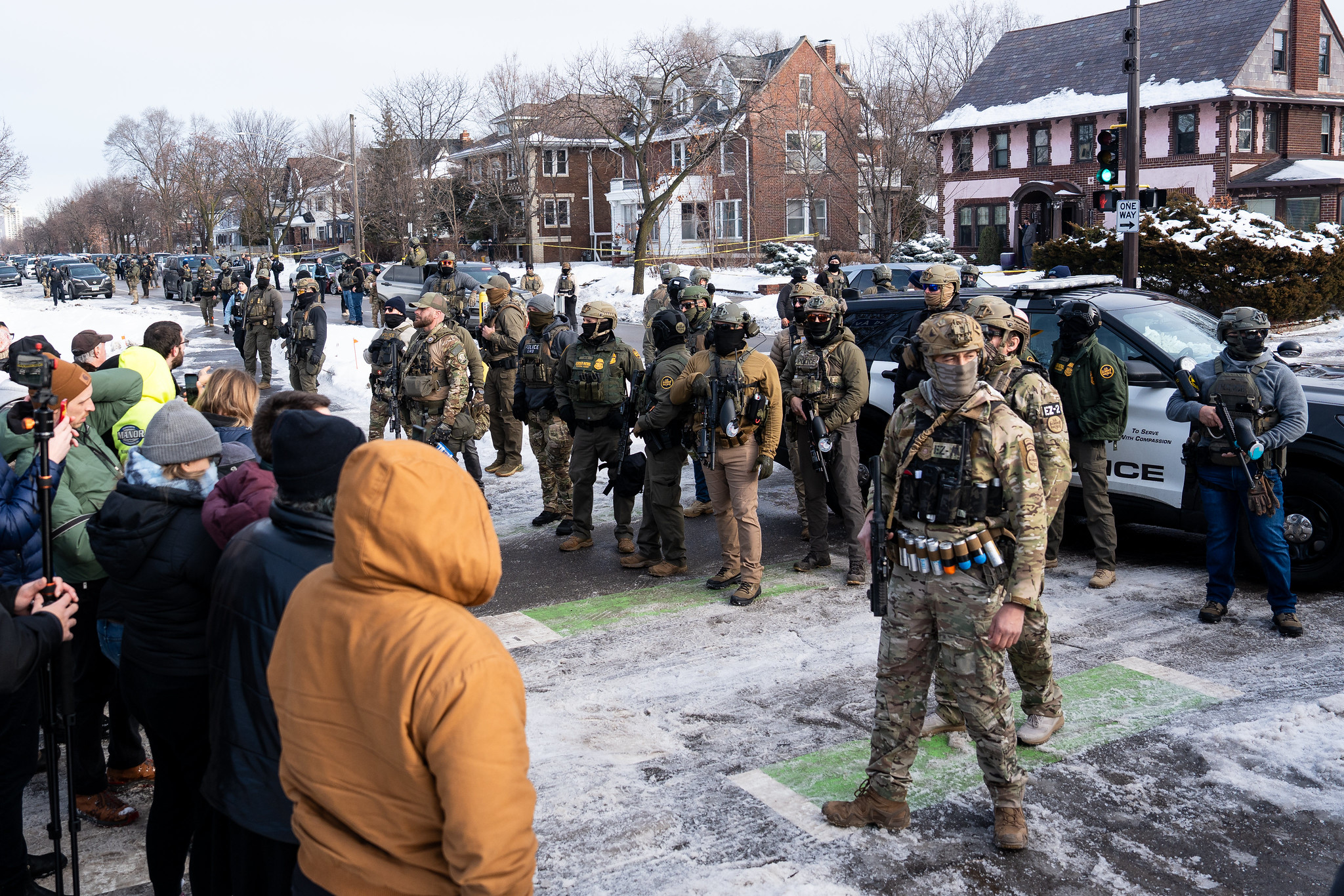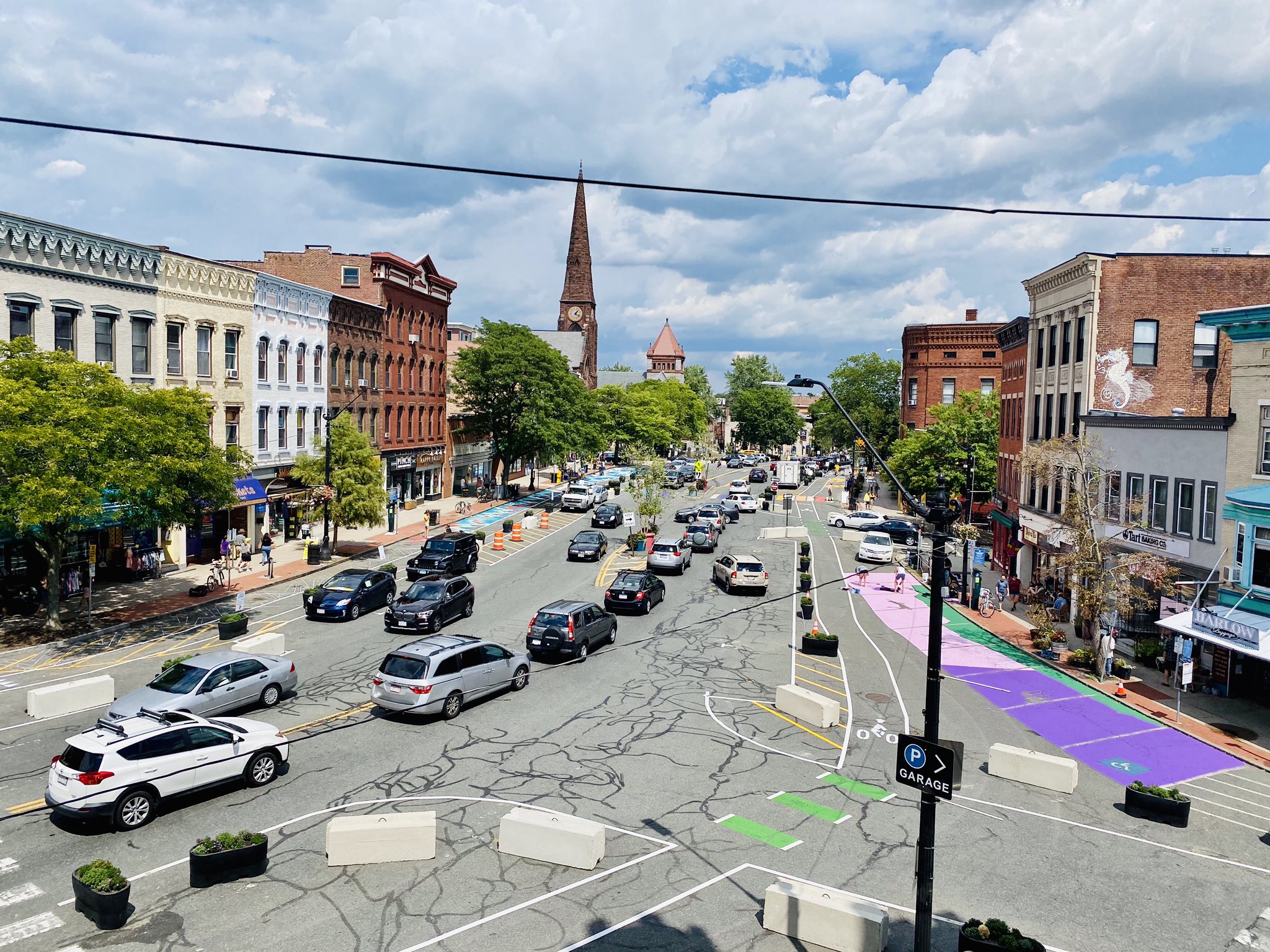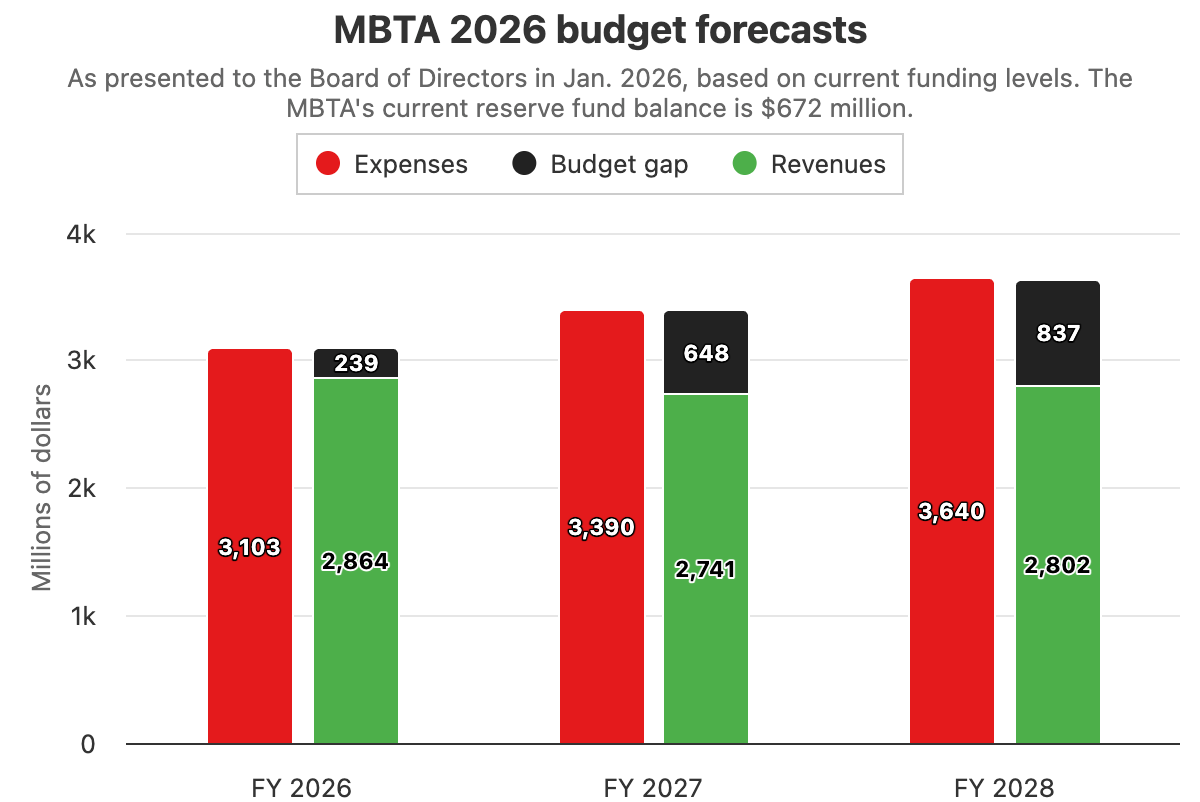This spring, the Cambridge City Council has endured several marathon public meetings to discuss – and ultimately reject – petitions that sought to roll back some of the city's landmark bike and pedestrian safety initiatives.
Each time, dozens of residents have lined up to testify in defense of policies like the city's Cycling Safety Ordinance. Last night, the Council sat through yet another lengthy debate for a new policy order, sponsored by City Councilor E. Denise Simmons, that seeks to allow cars back into the city's riverfront park on Saturdays (the policy order's supporters tabled a vote until June 6, after it became clear that they didn't have enough votes for it to pass).
Tonight we'll be voting to reaffirm our support for pedestrianizing Memorial Drive.
— Burhan Azeem, Cambridge City Councillor (@realBurhanAzeem) May 23, 2022
*Sigh*
Can we be done?
Do we really need to reaffirm these issues every week?
It's time city hall focuses on other issues. Housing affordability. Gun violence. Youth employment.
The majority of Cambridge's City Council has consistently supported the city's efforts to reduce traffic and meet climate goals by encouraging more walking, bicycling, and transit use around the city, even if it means making life slightly less convenient for car owners. And at the ballot box, too, voters have consistently elected Councilors who support initiatives like the Cycling Safety Ordinance.
But it's a different story if you get your coverage of these debates from public radio or television news reports.
A StreetsblogMASS analysis of six recent broadcast news stories about bike lanes in Cambridge found that just two sources took up the majority of airtime: the owners of Fast Phil's barbershop and the owners of the Guitar Shop, the two businesses leading the new "Save Mass. Ave." organization that opposes new protected bike lane projects.
Only one of those six stories (a WBUR story from April 26) quoted anyone who was not a City Councilor and explicitly identified themselves as a bike or transit rider:
| Date | Broadcaster, headline | Sources quoted (in order of appearance) |
|---|---|---|
| Jan. 11 | WGBH: Bike lane backlash pushes Cambridge to consult with small business owners | Fast Phil’s co-owner Cindy Hughes Cambridge City Councilor Paul Toner LivableStreets Alliance Executive Director Stacy Thompson |
| April 12 | WCVB: Cambridge business owners, city at odds over parking spaces lost with new Massachusetts Avenue bike lanes | Anette Osgood, manager of Guitar Stop Fast Phil’s co-owner Cindy Hughes Sharon Cerny, local landlord |
| April 18 | Boston 25: Bike lanes vs. parking spaces: the battle heats up in Cambridge | Anette Osgood, manager of Guitar Stop City Councilor Burhan Azeem |
| April 25 | WGBH: Commentary: Searching for a spot on Mass. Ave. | Fast Phil’s co-owner Cindy Hughes Cambridge City Councilor Paul Toner |
| April 26 | WBUR: Porter Square plan for new bike lanes moves ahead without delay | Joyce Levine, Cambridge resident Elizabeth Petit, Cambridge resident |
| May 23 | WCVB: Bike lanes taking away valuable parking spots, business owners say | Fast Phil’s co-owner Cindy Hughes City Councilor Burhan Azeem |
By relying on the same voices over and over again, these news outlets all offered their listeners a singularly car-oriented perspective on how, and for whom, Massachusetts Avenue should be designed.
None of the six stories mentioned the city's climate goals, and only a handful make any mention of the safety issues that the Cycling Safety Ordinance is meant to address on Massachusetts Avenue, where drivers have injured at least 70 people since the beginning of 2021.
Collectively, these stories present a classic case of "windshield bias" – news coverage that devotes more attention to the perceived needs of car owners, and all but ignores the broader public interest in reducing pollution and building safer streets.
To put it another way: the co-owner of Fast Phil's takes up a lot of airtime among these six stories, but she doesn't represent the majority of public opinion in the city of Cambridge.
Additionally, the conflict that's presented in these reports – "bike lanes vs. parking spaces" – ignores and distracts from the more pressing problems of traffic violence and pollution that the city is trying to address.
Fortunately, local print media have been doing a better job in covering these stories more realistically. The Cambridge Day has produced several detailed recaps of City Council hearings with quotes from a broad range of advocates who represent more perspectives.
And in February, the Boston Herald printed a story on the new bike lanes west of Porter Square that leads with the familiar grievances from business owners, but follows up with an equal number of quotations from bicycle users in the second half of the story.






